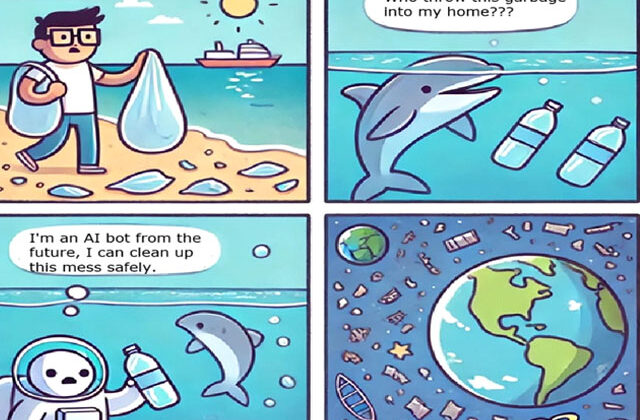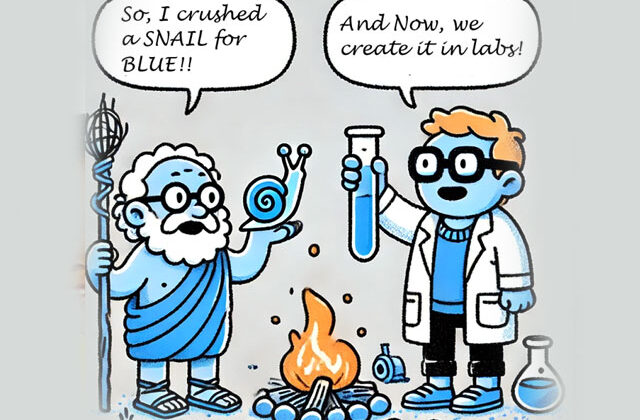‘Ripple effect -02

Mrs. Ramya Sethu Ram M.E
Hello Readers,
Meet the Most Powerful Species on Earth
In last month’s edition of “Ripple Effect,” we stepped into the microscopic world of cyanobacteria, the tiniest of all organisms, and explored their monumental impact on our planet. Now, we shift our focus from the microscopic to the macroscopic, exploring the mightiest creature to ever inhabit Earth. Think about a creature that now leads on the land where big elephants and fierce lions once roamed; rules the seas where dolphins, sharks, and huge whales used to be the bosses; and even controls the skies, once the home of flying eagles and vultures. This creature is at the center of everything on Earth, showing both kindness and strength. It has power like no other animal has ever had. It lives everywhere—from cold icy places and hot deserts to thick forests and big cities.
Who could this be?
You might be surprised—it’s us, HUMANS. Our journey from primitive tool users to architects of vast civilizations is not just a story of survival but of exceptional dominance. In this issue, we will explore how the human species has fundamentally transformed Earth itself.
The Spark That Started It All
Fire was one of the first big discoveries by humans. It kept us warm, scared away animals, and helped cook food, making it easier to eat and giving us more energy. Fire also brought people together at night, helping them bond and build stronger communities. This wasn’t just about staying safe; it changed how we lived and worked together, starting us on the path to building everything from small villages to huge cities. While fire is a powerful tool that helped shape the Earth, it isn’t the only reason for our success. Our true superpower lies in our ability to coordinate on a large scale, a skill that has enabled us to achieve incredible feats throughout history.
Historical Collaboration
Think about the Great Wall of China or the big pyramids in Egypt. These monumental structures were not built by one person but by thousands working together. Each individual contributed a small part to a much larger endeavor, and together, they created something amazing that has lasted for ages, demonstrating the power of collective human effort.
Industrial Age Innovations
As we moved into the industrial age, our collaborative efforts took on new forms. In the 1900s, Henry Ford revolutionized how things are made with his assembly line method. Each person had a special job, and everyone worked together like parts of a big machine, making lots of cars quickly. This idea showed the world how organizing people to work together can achieve great things.
Modern Connectivity
Now, we can get together really fast with the help of the internet and phones. Flash mobs are a great example of this. People plan online to meet and perform a dance or a public act that often carries a message or supports a cause. Afterward, they disperse as quickly as they gathered. This shows how effectively we can organize and unite for meaningful actions, using our connectivity to promote awareness or drive social change. Remember the Jallikattu protest in Tamil Nadu? It started as a small local movement but quickly turned into a massive demonstration, drawing international attention and leading to legal changes, all coordinated through social media.
Mobilizing Our Collective Strength
Humans excel at working together to achieve goals. This collective skill can be harnessed for simple pleasures like watching TV, playing games, or aimlessly scrolling through the internet. Alternatively, it can drive monumental achievements such as operating space stations, conserving vulnerable species, combating climate change through initiatives like extensive tree planting, and providing crucial aid during global emergencies. Each moment of collaboration, whether small or significant, shapes our world.
What will you choose to do with this incredible power? Will you use our collective strength for fleeting distractions, or will you channel it towards creating substantial, enduring change?
What will you choose?






